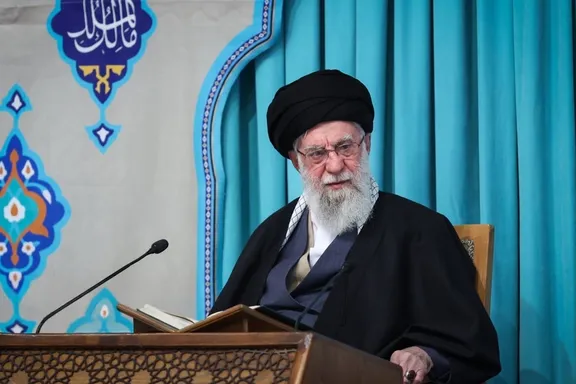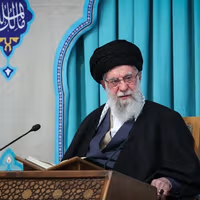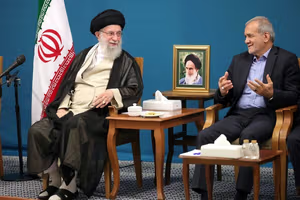Senior Israeli officials cited in Israeli media reports in recent days allegedly warned that Trump's hawkish administration provided the last best chance to unseat Iran's clerical rulers, their arch-foe in the region.
The officials, the Jerusalem Post and Kan News reported, argued that Iran’s refusal to relinquish its nuclear program means the country's leadership needs to be dismantled.
“I don’t think it’s a game changer,” Hessami, a political science professor of Iranian origin said. “It may be a change in the rhetoric, but the reality on the ground doesn’t change.”
Hessami says even the way regime change is being framed is vague and inconsistent.
“If by regime change you mean Khamenei’s death, or a totally different form of government, or a friendly government, you have to ask the officials what they mean,” he said. “To me, it is more rhetoric than reality.”
Iran denies seeking nuclear weapons and accuses Israel and Western powers of undermining its sovereignty.
Heavy not finishing blows
The idea has surfaced as Israel reassesses its posture after Operation Rising Lion and the coordinated US strike, Operation Midnight Hammer.
Both operations dealt heavy blows to Iran’s nuclear infrastructure but did not alter the core structure of power inside the country.
Israeli intelligence is also warning that Iran is shifting key elements of its nuclear program underground. Officials say Tehran is building a hardened complex known as Pickaxe Mountain, far from any meaningful international oversight.
Intelligence assessments suggest Iran has also expanded its war planning and is preparing for the capability to fire up to two thousand missiles per day if attacked again.
'No regime change for air'
Still, Hessami argues that none of these developments make regime change more attainable.
The events of the twelve-day war in June, he says, showed the limits of military action. Israel destroyed command centers and killed senior Iranian officials, yet Iran’s political and security structure remained intact.
“You can win the war in seven days or seven weeks, but can you win the peace,” he said. “You cannot do regime change from the air.”
He adds that the assumption Israeli strikes would trigger mass unrest or fractures inside Iran misunderstands the country’s political psychology. Even Iranians who resent the system often resist foreign interference.
“People may be upset, but they don’t want a foreign government to determine what the next government should look like,” he said. “The structure of power was intact.”
Hessami draws parallels to past miscalculations in Iraq and Afghanistan, where outside powers relied on exiled voices or optimistic intelligence that did not reflect realities inside the country.
“They were led to believe there would be a revolution or a coup d’etat,” he said. “That hasn’t happened.”
While the alleged Israeli warning reflects rising anxiety over Iran’s nuclear acceleration, Hessami says the timeline being floated is detached from Iran’s entrenched institutions and from the global history of foreign intervention.














